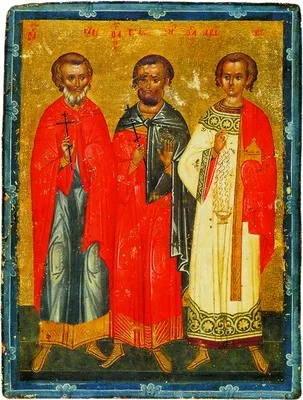
Abibus of Edessa: An Insight into the Life and Contributions of an Early Christian Leader
Abibus of Edessa stands as a significant figure in early Christianity, remembered for his leadership and contributions to the faith during a time of immense theological and political change. Edessa, located in modern-day Turkey, was a cultural and religious melting pot where various ideas and beliefs intermingled, and Abibus played a crucial role in shaping the Christian doctrine in the region.
Historical Background
Edessa has a rich history dating back to ancient times, often associated with the spread of Christianity and the development of early theological thought. Founded around 300 BC, it became one of the first cities to adopt Christianity as its state religion. Abibus, whose exact dates of birth and death remain uncertain, is believed to have served as a bishop in the city during the 3rd century AD, a tumultuous period marked by persecution and doctrinal disputes.
The Life of Abibus
While detailed historical records about Abibus are sparse, early Christian sources mention him as a bishop celebrated for his leadership and commitment to the faith. His tenure as a bishop was characterized by efforts to unify the Christian community in Edessa, which faced internal schisms and external pressures from paganism and rival sects.
Abibus was known for his eloquence and ability to articulate complex theological concepts. He sought to fortify the doctrines upheld by the Church, emphasizing the importance of apostolic teachings and resisting heretical movements that threatened to divide the faithful.
Theological Contributions
One of Abibus’s notable contributions was his involvement in the early church councils, where he played a part in establishing foundational Christian doctrines. His writings, though largely lost to history, were influential among his contemporaries. He is often referenced among other early church fathers who worked to define the nature of Christ and the Trinity.
Abibus’s commitment to pastoral care expanded the role of the bishop beyond mere administration; he actively engaged in preaching and educating the laity, fostering a community that was not just adherent to doctrine but also thriving in practice.
Cultural and Religious Impact
The city of Edessa served as a gateway for Christian thought, and Abibus played a pivotal role in its development as a religious center. His influence extended beyond the local community, reaching neighboring regions as ideas exchanged between East and West. The blending of Greek, Syrian, and Jewish thought during this period contributed to the richness of early Christian theology.
Moreover, legends and stories about Abibus have circulated within the Christian tradition, often portraying him as a miracle worker and a saintly figure. These narratives helped secure his legacy within the church, leading to his veneration in certain Christian traditions.
Legacy of Abibus
Despite the limited documentation about his life, the legacy of Abibus of Edessa endures in the teachings and practices of the Christian faith. His unwavering commitment to unity and doctrinal purity set a precedent for future church leaders. The church in Edessa continued to flourish long after his time, reflecting the foundational work laid by Abibus and his contemporaries.
In modern times, scholars continue to study Abibus's impact on the church's early formation and theological development. His life reminds contemporary Christians of the importance of leadership grounded in sound doctrine and community building.
Conclusion
Abibus of Edessa's contributions to early Christianity highlight the essential role of leaders in shaping religious thought and community dynamics. As we delve into the history of the church, figures like Abibus remind us of the complexities faced during the birth of Christianity and the lasting influence of their foundational work.






